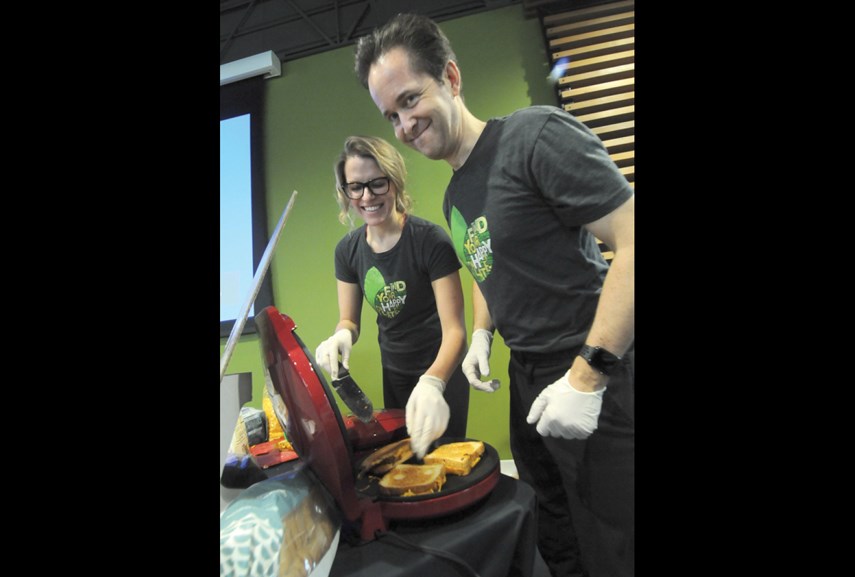They called themselves Conflict.
They were punks with guitars but they weren’t vacant and they didn’t want to be sedated. This band was aware and alert and doing their damndest to slap the taste of meat out of your mouth.
These days, Nicholas Jennings spends his days teaching English for Academic Purposes at Capilano University and touting organic gardening – but in 1984 he was in the crowd when Conflict took the stage.
The band had just released their first vegan anthem: “Meat Means Murder,” spitting out nearly 450 words in 210 seconds.
“The factory’s still churning out, all processed, packed and neat, an obscure butchered substance, and the label reads: ‘meat,’” the lead singer bellowed.
The stage was decked out with banners decrying
animal cruelty.
Jennings, just 15 years old, was transported.
“How could you not be inspired by that?” he asks. “The ’80s wasn’t Wham! or Duran Duran, it was social struggles. ... It really was a time when people wore boots.”
Jennings became a vegan shortly after, joining the fringe of the fringe and haunting army surplus stores for Israeli-issued boots made of canvas.
Far from anemic and gassy, mid-1980s anarcho vegans fire-bombed trucks and smashed the windows of butchers’ shops.
There’s a “much friendlier vibe” in vegan culture these days, Jennings says, explaining his role in promoting the 30 Day Vegan Challenge at CapU, which launched Jan. 3
More than 68 students are set to go without meat or dairy throughout Veganuary, according to Jennings.
A plant-based diet can translate into fewer sick days while benefiting the environment by reducing the need for animal agriculture, he notes.
Discussing the challenges of switching to a plant-based diet, Jennings says the difficulty some people have with leaving cheese behind, referencing a study that found eating cheese releases the peptide casomorphins, which is an opioid.
A 2009 study by the European Food Safety Authority found it unlikely those peptides could breach the blood brain barrier and trigger addiction.
Besides old habits, many new vegans need to overcome the resistance of their friends, Jennings says.
“There’s a lot of social pressure, peer pressure from friends who eat meat, to the point where (new vegans) had to stall and try again.”
Anyone giving up meat, poultry and fish should make sure they’re getting enough iron, calcium and B12, according to West Vancouver dietitian Diana Steele.
Steele, the owner of nutrition consulting company Eating for Energy, recommends replacing meat with beans, lentils and chickpeas as well as fruits and vegetables which provide the necessary vitamin C to assist in the absorption of iron.
Vegetarian chilli and tofu stir-fry with broccoli and red peppers are a couple of easy examples.
Nutritional yeast sprinkled on pasta can provide B12 while a fortified soy, rice or almond beverage can provide calcium, Steele says.
While there can be pitfalls, such as swapping meat for pasta and turning into a grain-atarian, a plant-based diet can be heart healthy and economical, “especially for students looking at the price of meat versus legumes,” Steele says.
There is a “cornucopia of variety” in the plant kingdom, Jennings says. But for those who crave burgers, there is also the option of lab-based meat that simulates blood with red vegetable juice.
“If they can eat things that are as close to what they really crave, I think that can be a good way,” Jennings says, emphasizing that there’s no sentience in meatless meats.



